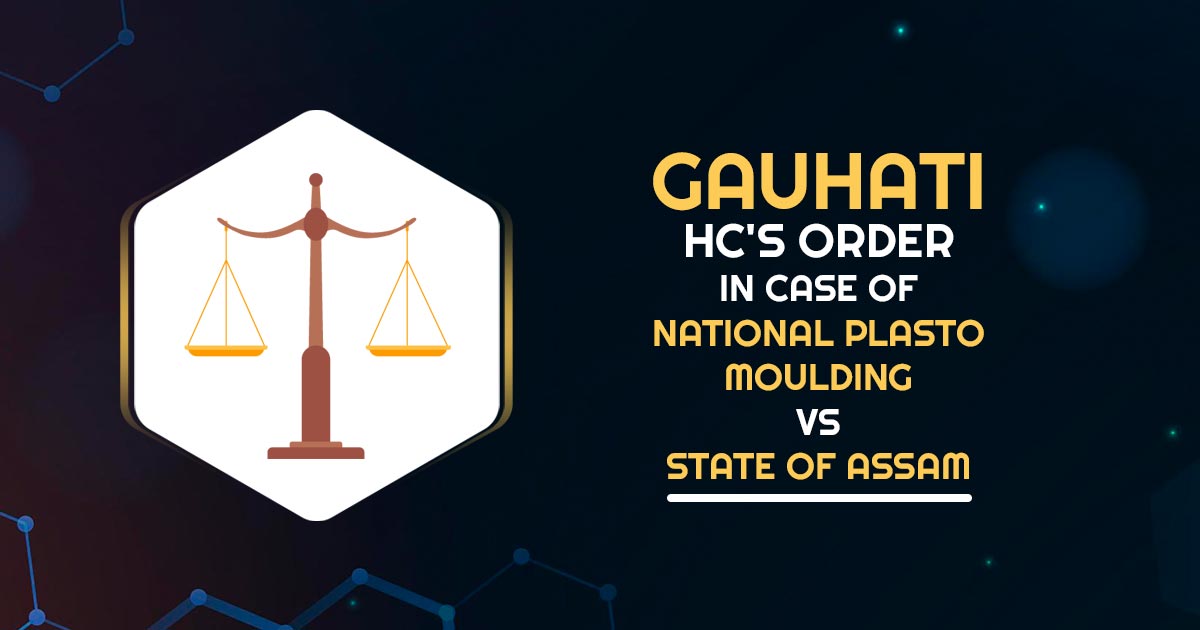
The Gauhati High Court, a purchasing dealer cannot be punished for the act of the selling dealer in matter the selling dealer had failed to deposit the tax collected by it.
The bench of Chief Justice Vijay Bishnoi and Justice Suman Shyam has marked that the Department is prevented from invoking Section 9(2)(g) of the DVAT to prohibit ITC to a purchasing dealer who has bona fide entered into a purchase transaction with a registered selling dealer who has allocated a tax invoice reflecting the TIN.
If the selling dealer has failed to deposit the tax collected by him from the purchasing dealer, the remedy for the Department shall proceed against the defaulting selling dealer to recover such tax and not prohibit the purchasing dealer regarding the ITC.
The applicant has contested the validity of Sections 16(2)(c) and 16(2)(d) of the Assam Goods and Services Tax Act, 2017 as well as the validity of Sections 16(2)(c) and 16(2)(d) of the Central Goods and Services Tax Act, 2017 including the show cause notices issued to the applicants.
It was argued by the taxpayer that the provisions of Section 9(2)(g) of the Delhi Value Added Tax Act, 2004 can be read down and the demand raised against the purchasing dealers, who have entered into bona fide transactions, cannot be upheld.
The court laid on Delhi High Court’s decision in the case of On Quest Merchandising India Private Limited vs. Government of NCT of Delhi & Ors., in which it was carried that the purchasing dealer is being asked to do the inconceivable, i.e., to expect the selling dealer who will not deposit with the government the tax collected by him from those purchasing dealers and thus evade transacting with such selling dealers.
On the other way, what Section 9(2)(g) of the DVAT Act directs the purchasing dealer to do is somehow ensure that the selling dealer does deposit the tax collected from the purchasing dealer, and if the selling dealer fails to do so, experience the risk of being rejected the ITC. Section 9(2)(g) of the DVAT Act places a demanding burden on a bona fide purchasing dealer.
Read Also: GST vs VAT: Simple Way to Describe the Differences
The show cause notices have been quashed by the court and the consequential orders and granted the liberty to the Department to act in those cases, where the purchase transactions are not bona fide, under law.
| Case Title | National Plasto Moulding VS State Of Assam |
| Case No. | WP(C)/2863/2022 |
| Counsel For Appellant | A. Saraf, P.K. Bora |
| Counsel For Respondent | S.C. Keyal |
| Gauhati High Court | Read Order |